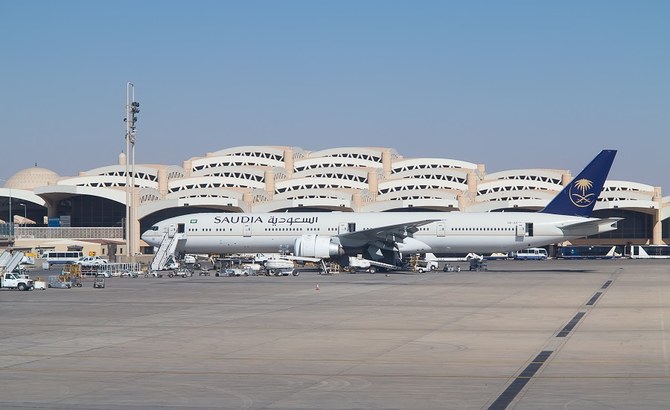RIYADH: Saudi Arabia’s real estate sector is expected to experience growth in 2025, fueled by the ongoing efforts of Vision 2030 to diversify the Kingdom’s economy, according to a recent analysis.
In its latest report, real estate services firm JLL highlighted that economic growth across the Gulf Cooperation Council is expected to remain strong in 2025, with Saudi Arabia leading the charge. The Kingdom’s non-oil sector is projected to expand by 5.8 percent in 2025, an increase from 4.5 percent in 2024.
JLL also noted that Saudi Arabia’s construction sector continued to perform well in 2024, with project awards totaling $29.5 billion.
A strong real estate market is critical for the Kingdom as it works to position itself as a global hub for tourism and business, reducing its long-standing dependence on oil revenues.
The Real Estate General Authority of Saudi Arabia forecasts the property market to reach $101.62 billion by 2029, with a compound annual growth rate of 8 percent starting in 2024.
Saud Al-Sulaimani, country head of JLL, Saudi Arabia, said: “Despite global economic headwinds, the resilience and strategic diversification efforts in Saudi Arabia, driven by Vision 2030, are a significant catalyst for real estate development, attracting both domestic and international capital.”
He added: “The flight to quality, limited vacancy in prime assets, and ambitious tourism strategies are further bolstering sustained demand across key sectors, particularly in Riyadh and Jeddah, creating a compelling investment landscape for the long term.”
According to the report, the hospitality, mixed-use, and leisure sectors saw substantial activity, while the residential sector also performed strongly, with $7.9 billion in awards in 2024.
JLL pointed out several challenges faced by Saudi Arabia’s real estate sector, including capacity constraints, rising costs, and geopolitical conflicts.
The report emphasized that the Kingdom is tackling these challenges through increased localization efforts, ongoing infrastructure investment, and digital transformation. Additionally, regulatory reforms, improved stakeholder collaboration, and a focus on renewable energy and sustainability are key strategies to overcome these obstacles.
“Strategic projects that underpin Saudi Arabia’s Vision 2030 will continue to attract substantial investments, creating new opportunities for market expansion,” said Maroun Deeb, head of projects and developments for JLL in Saudi Arabia.
He added: “Significant cash flow is anticipated for major events like the FIFA World Cup 2030 and EXPO 2030, further boosting infrastructure development and positioning the real estate sector for robust performance and positive growth in 2025 and beyond.”
In 2024, Riyadh’s office sector witnessed strong demand, while limited supply saw Grade A buildings registering a mere 0.2 percent vacancy.
The analysis added that average rents for Grade A office spaces stood at $609 per sq. meter by the end of the fourth quarter of 2024.
Grade A office spaces command a premium due to their prime location, infrastructure, and modern amenities.
JLL revealed that 326,000 sq. meters of gross leasable area was added to the market in 2024, while 888,600 sq. meters are awaiting in the pipeline in 2025.
“Jeddah is emerging as a compelling alternative, attracting regional and international corporations to its modern, high-quality office spaces in the northwestern region. Dammam’s market remains stable, primarily driven by government entities,” added JLL.
In Riyadh’s residential sector, villas continued to dominate, accounting for 53.3 percent of the overall transactions.
Even though 28,943 units are slated for 2025 in Riyadh, new supply lags will likely drive price and rental increases.
According to JLL, Riyadh’s hospitality industry witnessed significant growth in 2024, with average daily rates surging by 13.3 percent year on year to $239.
The report added that Riyadh’s growth as a key business and leisure hub will continue, with 2,312 keys expected in 2025.
“As Saudi Arabia progresses with its Vision 2030 objectives, Riyadh’s hospitality market is likely to play a crucial role in supporting the Kingdom’s broader economic goals and establishing itself as a key destination for both business and leisure travelers in the region,” said JLL.
Jeddah’s hospitality landscape, bolstered by religious and leisure tourism, also remained strong in 2024.
The report added that upward rental rates in Riyadh and Jeddah’s industrial and logistics sectors indicate strong market activity and robust demand for enhanced logistics and warehousing capabilities.
Regarding the data center landscape, JLL said that 5G and artificial intelligence are driving the segment’s growth.
“Saudi Arabia, particularly Riyadh, Dammam, and Jeddah, boasts a significant data center footprint. The Kingdom ranks third in live colocation data center facilities and contributed approximately 12.6 percent of the region’s 1,050 MW operational IT load capacity by the end of 2024, positioning it well for further expansion,” concluded JLL.




















